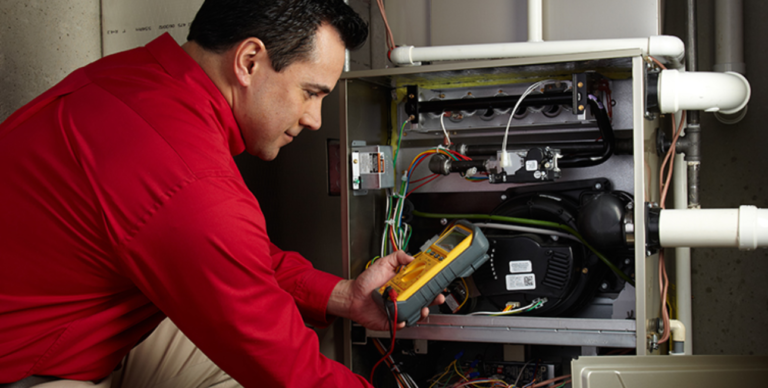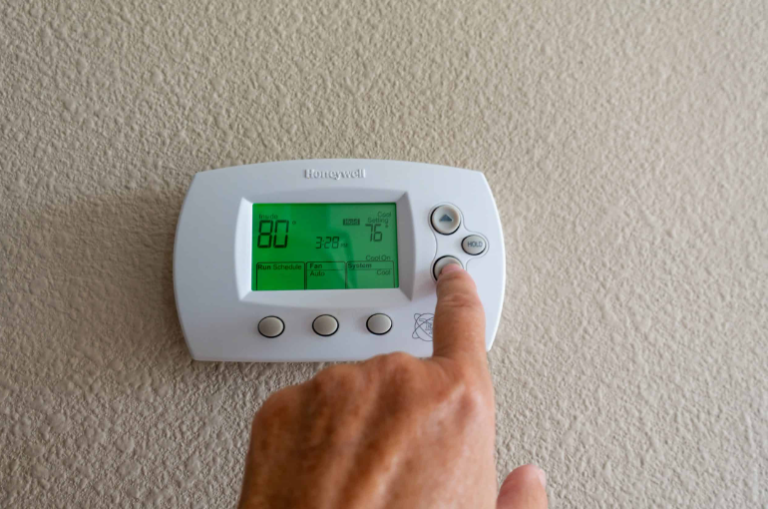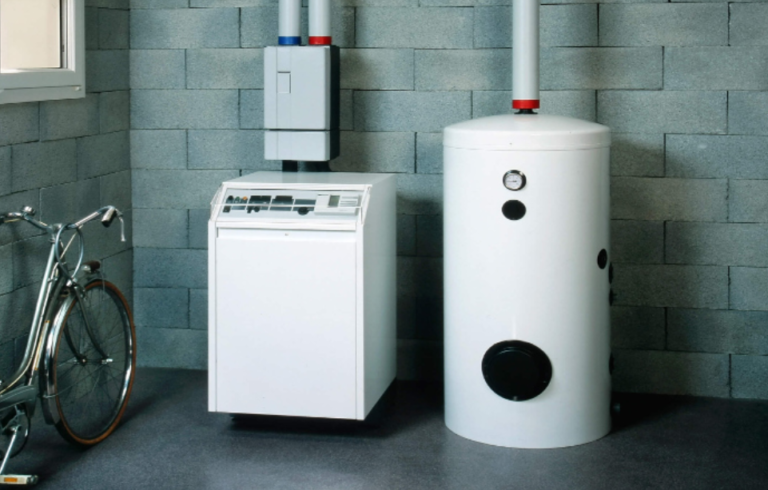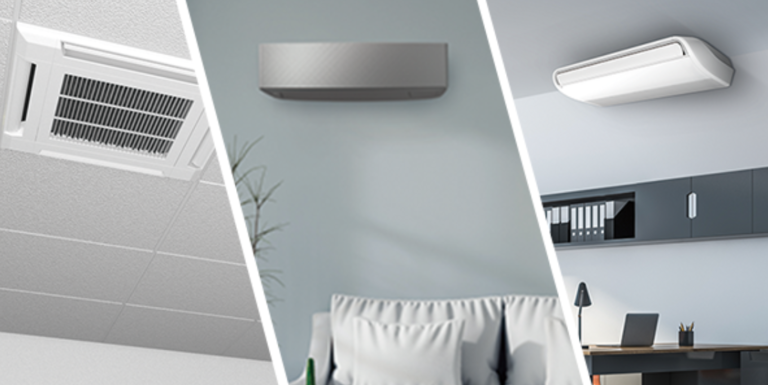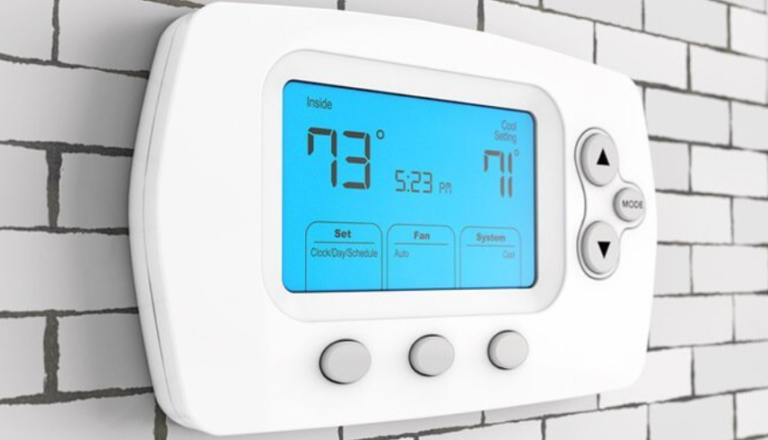5 Key Differences – Boiler vs Water Heater
A boiler and a water heater, while similar in function, are two very different devices. It’s important to know the difference between the two because they serve different purposes and have different maintenance needs.
A boiler uses a heat source to heat water, which is then circulated through a system of pipes to radiators or radiant flooring in your home. A water heater, on the other hand, heats water directly and can provide hot water on demand without the need for a pump or circulating system.
What is a boiler?
A boiler is a closed vessel in which water or other fluid is heated. The fluid does not necessarily boil.
Boilers generally have two or more steel plates (called drums) that are stacked one on top of the other. They also have vertical tubes (called headers) that pass through the drums.
The headers are connected to horizontal tubes (called flues) that carry the hot gases from the fire through the boiler. Water surrounds the header and flues and is turned into steam by the heat from the fire.
The hot gases from the fire go up through the furnace and into the boiler.
For more information, you can read this article that explains how boilers work.
What is a water heater?
There are many different types and styles of water heaters, but they all serve the same purpose – to provide you with hot water.
The most common type of water heater is a storage tank water heater. This type of water heater stores hot water in a tank and supplies it to your home as needed. Storage tank water heaters are available in a variety of sizes, so you can choose one that best meets your needs.
Another type of water heater is a tankless water heater. A tankless water heater doesn’t store hot water in a tank; instead, it heats up water on demand. Tankless water heaters are more energy-efficient than storage tank water heaters because they only heat up the water you need, when you need it.
5 differences between boiler and water heater
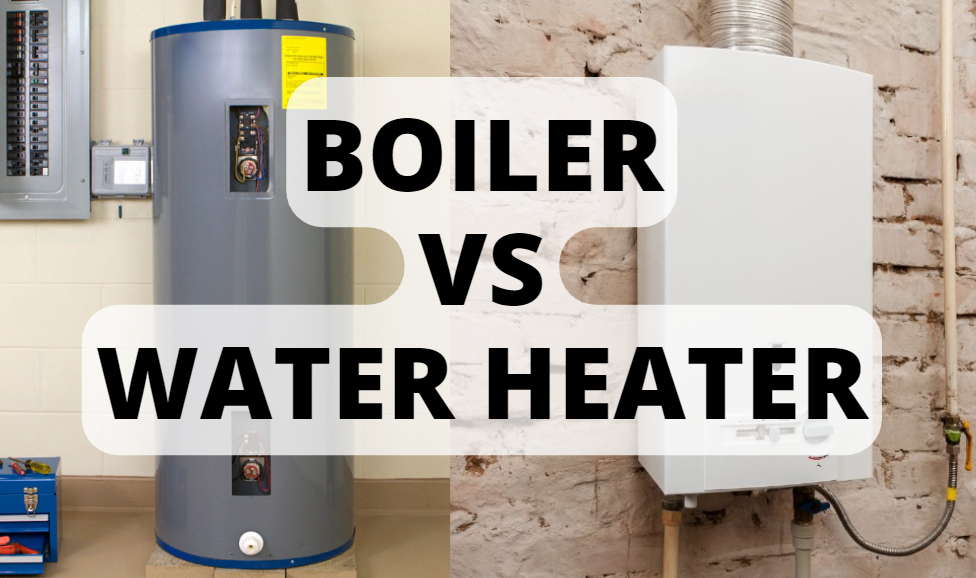
A boiler and water heater serve two different purposes. A boiler uses hot water to heat your home, while a water heater stores hot water for you to use later. Here are five key differences between boilers and water heaters:
1. Boilers vs. Water Heaters: Function
A boiler and a water heater, while both used to heat water, have very different functions. Boilers are typically used in homes to provide heating, while water heaters are used to provide hot water for dishwashing, laundry and bathing.
Boilers work by heating water and circulating the hot water throughout the home. The hot water from the boiler is circulated through a series of pipes and radiators. The radiators then release the heat into the rooms of the home. Water heaters, on the other hand, simply store hot water until it is needed.
While boilers can be used to heat a home, they are not as common as they once were. More and more homeowners are opting for furnaces or heat pumps to heat their homes. Water heaters, on the other hand, are still widely used in households across the country.
2. Boilers vs. Water Heaters: Efficiency
There is no significant difference between boilers and tanked water heaters.
On the other hand, tankless water heaters are more efficient than boilers and tanked water heaters because there is no need to constantly reheat a stored supply of hot water. As a result, tankless water heaters can save you money on your energy bills.
Another advantage of a tankless water heater is that it doesn’t take up much space. That’s because there is no storage tank. This makes them ideal for small homes or apartments where space is at a premium.
3. Boilers vs. Water Heaters: Cost
Initial Cost
When it comes to initial cost, boilers are generally more expensive than both tanked and tankless water heaters. This is because boilers require additional equipment, such as a pump and piping, to circulate the hot water throughout your home.
Tankless water heaters also tend to be more expensive than their tanked counterparts because they require a higher upfront investment.
Operating Cost
When it comes to operating costs, tankless water heaters tend to be the most efficient option. This is because they only heat water on demand, so you’re not paying to keep a large tank of hot water heated at all times.
Boilers are also fairly efficient, but they can have higher operating costs if they’re not properly maintained. Tankless water heaters have the potential to save you money in the long run, but they may have a higher initial investment.
4. Boilers vs. Water Heaters: Size
If you have a small home, a tankless water heater might be the better option. That’s because a boiler or a tanked water heater can take up a lot of space. They need to be large enough to hold all of the water that it will heat. This can be a problem in small homes where space is limited.
A tankless water heater is much smaller. It can be hung on a wall or mounted underneath a sink. This makes it a good choice for small homes where space is at a premium.
5. Boilers vs. Water Heaters: Maintenance
when it comes to maintenance, there are some big differences between the two. Boilers typically need to be checked and serviced more often than water heaters, and they also require more specialized knowledge to properly maintain.
Water heaters, on the other hand, are generally much easier to maintain. While they still need to be regularly flushed and inspected for leaks, they don’t require the same level of care as boilers. This is because water heaters don’t have as many moving parts, and they don’t generate the same amount of heat.
One of the biggest benefits of a tankless water heater is that they tend to last much longer than traditional tanked heaters.
This is because there’s no standing water in the tank that can rust or corrode the heating elements. Tankless water heaters also don’t have any anode rods that need to be replaced, which further extends their lifespan.
The main downside of tankless water heaters is that they can be more expensive to install than traditional tanked heaters.
They also require more regular maintenance, such as descaling, to keep them running properly. However, the increased cost and maintenance requirements are offset by the fact that tankless water heaters have a much longer lifespan.
In general, boilers require more frequent and specialized maintenance than water heaters.

